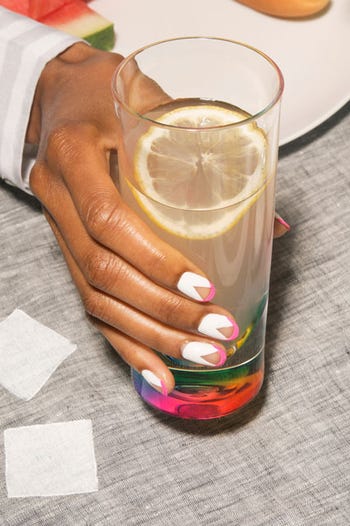 You’ve heard it time and again: Water is the elixir of life. And it’s true. Your body relies on water for everything from temperature control to keeping your joints lubricated. But as simple as it seems, there are a lot of hydration-related myths and misconceptions swirling around out there.
You’ve heard it time and again: Water is the elixir of life. And it’s true. Your body relies on water for everything from temperature control to keeping your joints lubricated. But as simple as it seems, there are a lot of hydration-related myths and misconceptions swirling around out there. “Drink more water,” for example, is often recommended as step No. 1 for myriad health goals, like immune function, beating dry skin, and more. But in fact, while you do need water for literally millions of your body’s daily processes, it’s not as though water is a panacea. For example, unless you’re sick, your body is really good at managing your fluid balance on its own. It will tell you when you’re thirsty and you need more water — all you have to do is listen.
Ahead, we’ll cover what you really need to know about hydration and dehydration, minus all the myths.

The 8x8 rule is basically made up.
First things first: You’ve probably heard a million times that you should be drinking 8 ounces of water 8 times a day to avoid dehydration. But this long-standing myth isn’t based on evidence. It’s mostly stuck around simply because it’s easy to remember.
All that said, if you’re still looking for a goal, the Institute of Medicine set an evidence-based general recommendation of 91 ounces (or 2.7 liters) of fluid per day for women.

Thirst doesn’t automatically mean dehydration.
One of the most bogus myths out there is the idea that once you start to feel thirsty, you’re already dehydrated. The truth is that what we know as “thirst” is a complex physiological process that works to prevent dehydration. Your brain actually has a number of very precise mechanisms for monitoring water in your cells, with each of these being sensitive enough to detect when the water in your body decreases (or increases) by a few hundred millileters.
As you sweat and breathe throughout your day, you lose some water and your cells react by shrinking. This shrinkage triggers your brain to tell you to drink up. As long as you listen to that urge, you will have corrected the problem before it becomes one.

You can eat your water.
Going back to the idea that water is the elixir of life, H2O is a component of every living thing — and that includes the stuff we eat. The Institute of Medicine says that 20% of your fluid intake should come from food (and yes, that’s included in the 91 ounces).
Options like soup and oatmeal will get you a good helping of fluid, but the most water-rich foods are fruits and vegetables. Good old watermelon is more than 90% water, for example, while cucumbers, celery, and certain lettuces are roughly 95% water.

Coffee probably isn’t going to dehydrate you.
Neither is tea or any other caffeinated beverage. While it’s true that caffeine can act as a mild diuretic, meaning it can make you have to pee more often, this effect is not strong enough to create a net loss of fluid. In other words, say you drink a large coffee: The amount of water in that beverage is enough to offset anything you might lose by urinating afterward.
Plus, other research suggests that regular coffee drinkers can adjust to the habit. So, over time, caffeine becomes even less of a diuretic. Even more reason to enjoy your regular Starbucks runs: they're energizing and hydrating.
Like what you see? How about some more R29 goodness, right here?
Is It True That Black Don’t Crack?
Does Period Underwear Really Work? We Put Them To The Test
This Gabby Douglas Balance Beam Routine Will Leave You Speechless